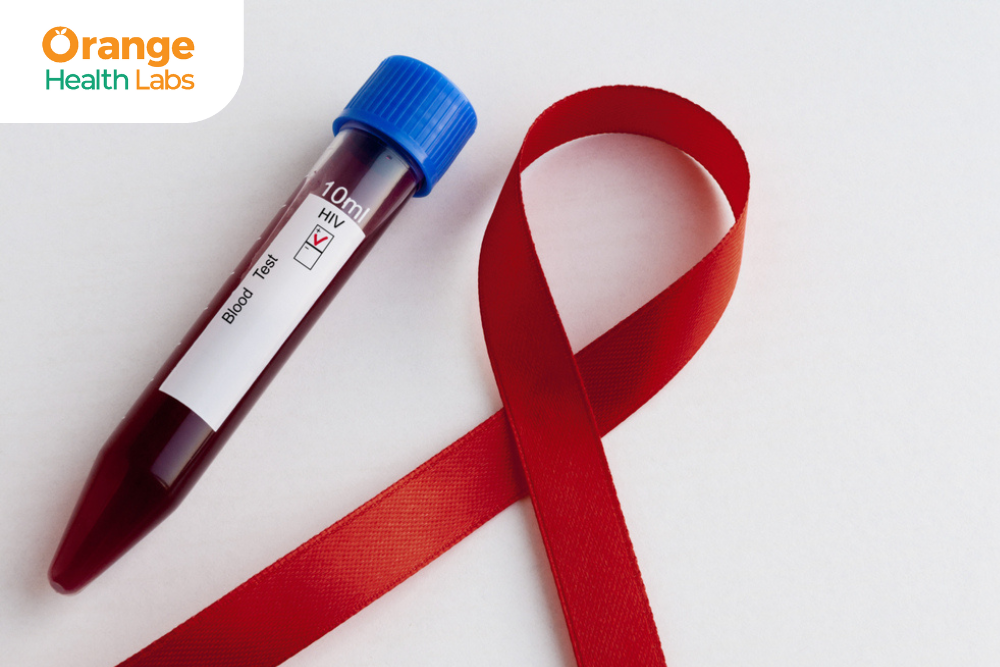Search for
SupportWhen to Consider Getting an HIV Test: Key Moments in Your Health Journey

HIV remains a global health issue that has claimed 40.4 million lives and continues to rise in numbers every year. Early detection and proper diagnosis are the only ways to contain and prevent the spread of the disease. To achieve this, regular HIV testing is crucial.
In this blog, we will be covering the various stages in life and situations where a timely HIV test can be immensely valuable. It is always important to remember that prevention is better than cure and regular testing helps keep you and your family safe.
Understanding HIV and Its Impact
HIV or Human Immunodeficiency Virus attacks the body’s immunity targeting the white blood cells. A compromised immune system weakens the body’s ability to fight off diseases and makes it easier to contract other conditions like infections, some cancers, etc. Therefore, early testing for HIV protects the patient from developing other complications.
According to WHO, there were 39.0 million patients living with HIV globally. In 2022 alone, 630,000 people died due to HIV-related reasons while 1.3 million new people acquired the deadly infection.
A survey conducted by the National AIDS Control Organization, Indian Council of Medical Research and National Institute of Medical Statistics found that around 24 lakh patients are living with HIV in India. This includes adults and children above the age of 15.
Regular Screening: Who Needs It?
It is highly recommended that any person who is sexually active (ages 13 to 64 years) should take an HIV test at least once in their lifetime and every time they are involved in new relationships. This is because contracting a low-symptom disease like STD could even lead to HIV.
In addition to this, if you are unsure about the status of your partner, the safer option is to go for an HIV test.
Some specific risk groups that should test at least once a year include:
- Men engaging in sexual activities with men
- People diagnosed with tuberculosis or hepatitis
- Individuals who have had intercourse with a person diagnosed with HIV
- People exchanging sex for drugs or money
- Individuals sharing drug injections, syringes or needles with others
- Babies born to mothers with HIV
- Blood transfusion from HIV-positive individuals
- Individuals with sexually transmitted diseases (STD) such as syphilis, herpes, chlamydia, gonorrhea and bacterial vaginosis
- Individuals with more than one sexual partner
- Individuals from communities with a high prevalence of HIV
- Receiving medical procedures involving unsterile cutting equipment
Key Life Events When You Should Get Tested
While it is recommended that a person should get themselves tested at least once in their lifetime, there are a few specific instances when an HIV test is mandatory. Some of these cases are explained below.
Before Starting a New Sexual Relationship
Owing to the long-term effects of HIV on one’s health, it is always better for both partners in the relationship to get themselves tested. It is important that partners share their regular health status updates, specifically the HIV test as it helps in containing the disease.
After Unprotected Sex
HIV is transmitted through body fluids like blood, semen, anal and vaginal secretions. Unprotected sex heightens the risk of transmission of the virus. Unless your partner has a report confirming that they are HIV- negative, it is always advisable to get yourself tested, at the very earliest.
During Pregnancy
HIV can also be transferred from mother to fetus during pregnancy and post-delivery via breast milk and getting tested reduces the risk of transmission. If detected, the mother can be prescribed medication throughout her pregnancy period. At the same time, the newborn is also administered medicines for 4 to 6 weeks after birth. With this, the risk of transmission is less than 1%.
After Exposure to Potentially Infected Blood
In situations that involve needle injuries and blood transfusion, a mandatory test is needed to avoid the risk of transmission and begin treatment as needed.
When Considering Tattooing or Piercing
Needles are an easy way to contract HIV as they come in contact with your skin and blood. Therefore, before signing up for a tattoo or piercing, ensure that the establishment uses sterile needles.
If Experimenting With Intravenous Drugs
Syringes and injections, especially those that are shared, increase the risk of HIV. Getting yourself and everyone involved tested is the safest way to go. Better yet, don’t share needles with others. Discard it after you are done using it. Don’t accept a needle used by someone else.
Signs and Symptoms Prompting an HIV Test
The initial symptoms of the disease usually go undetected and can often be mistaken for some common illnesses, making HIV tests crucial. With that, here are some signs and symptoms.
Recognizing Symptoms
HIV spreads the most in the first few months of contracting it. While some patients may not experience symptoms, others would have illnesses like
- Fever
- Rash
- Headache
- Sore throat
Once the virus begins to affect your immune system, the symptoms become more visible like
- Weight loss
- Swollen lymph nodes
- Diarrhea
- A cough that doesn’t settle
If left untreated, patients can develop severe illnesses like tuberculosis (TB), cryptococcal meningitis, severe bacterial infections, and cancers such as lymphomas and Kaposi's sarcoma.
How Often Should You Get Tested?
Different risk factors require varying frequencies of testing. However, regardless of your lifestyle, it is recommended to take an HIV test at least once in your lifetime.
For men who engage in sexual activities with other men, a screening every 3 to 6 months is recommended.
If you engage in unprotected sex, an HIV test the morning after or within 24 hours will help in containing it before it develops beyond control. Furthermore, a test at least once a year is recommended for sexual partners of HIV patients, regardless if they take the precautionary contraceptives.
If you do share needles and syringes with other users, a test once a year would be your best option for keeping you safe. Patients with existing sexually transmitted diseases should take an HIV test once a year to ensure that the infection has not developed into HIV.
Where and How to Get Tested
Most HIV tests are done by studying the antigen/antibodies in the blood, urine, or saliva. Additionally, the viral load can be measured too. Hospitals and recognised laboratories are the safest options for taking these tests, as the doctors will give an immediate prognosis. Usually, your blood or saliva is taken as a sample to be studied and the results are delivered in a day or sometimes in a week.
There are testing kits available online where you can carry out the tests in the comfort of your home and you get the results in less than 20 minutes. Rapid tests are another available option with a result delivery time of 30 minutes.
Conclusion
To ensure a healthy life for you, your partner and your family, getting an HIV test is crucial. Since there is no known cure as of now, early detection helps in preventing the spread to others as well as getting treatment to live a healthy life.
Book HIV Test in your city: HIV Test in Mumbai | HIV Test in Bangalore | HIV Test in Noida | HIV Test in Hyderabad | HIV Test in Gurgaon | HIV Test in Faridabad | HIV Test in Delhi

Why the Right Nutrition Matters in Childhood

Dengue Symptoms in Pregnancy: Signs You Shouldn’t Ignore
